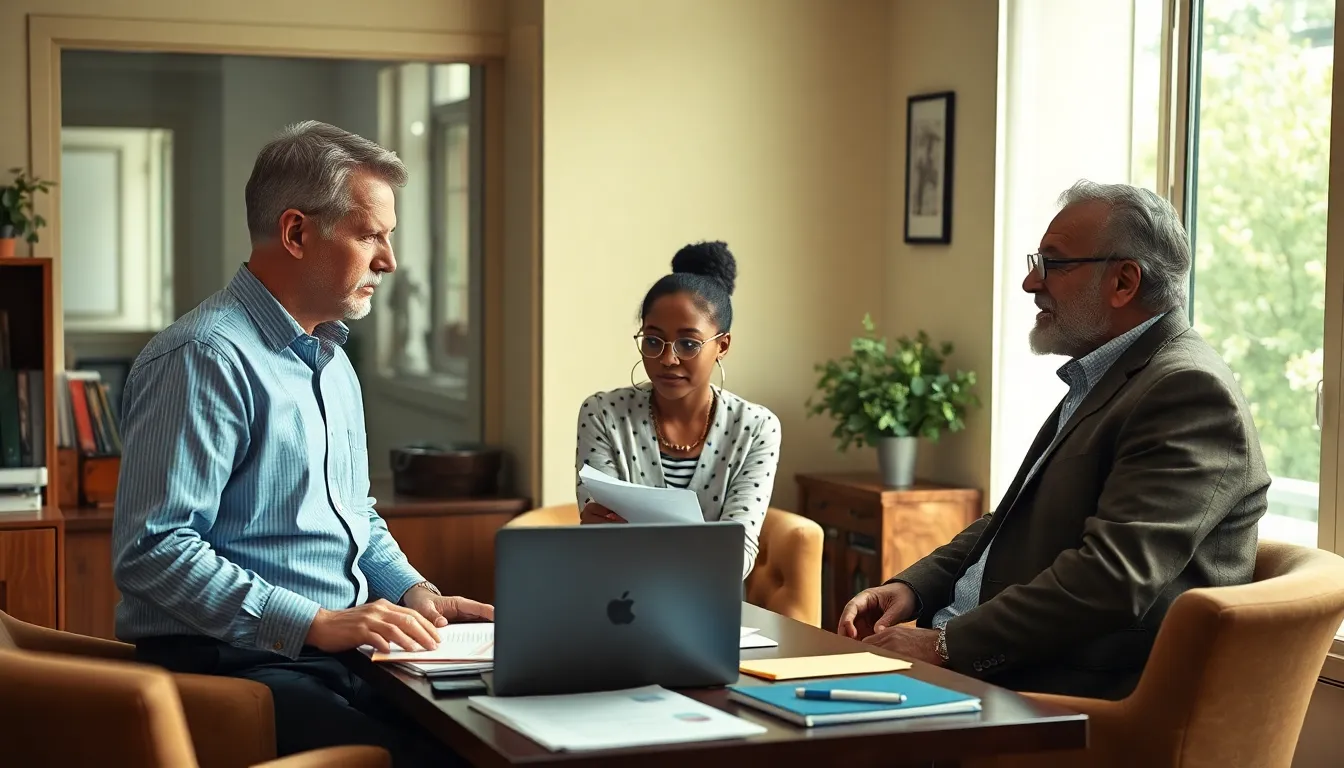Table of Contents
ToggleManaging property can feel like herding cats—chaotic and often unpredictable. Whether you’re a seasoned landlord or just starting out, juggling tenants, maintenance issues, and finances can be a real juggling act. But fear not! With the right property management tips, you can turn that chaos into a well-oiled machine, all while keeping your sanity intact.
Essential Property Management Tips
Establish clear communication channels with tenants. Regular updates and open discussions promote trust and ensure quick resolution of issues.
Implement a thorough screening process for applicants. Checking backgrounds, credit history, and rental history minimizes future conflicts and helps select responsible tenants.
Create comprehensive lease agreements. Detailed terms can prevent misunderstandings and establish expectations from the outset.
Stay organized with property financials. Use accounting software to track income and expenses, ensuring accurate financial planning and timely tax submissions.
Conduct routine property inspections. Regular checks not only maintain property condition but also demonstrate care for tenants and uphold lease agreements.
Address maintenance requests promptly. Quick responses show respect for tenant needs and prevent minor issues from escalating into costly repairs.
Utilize effective marketing strategies. Listing properties on popular rental platforms and using high-quality images attract more prospective tenants and reduce vacancy periods.
Monitor local laws and regulations. Staying informed ensures compliance, protecting landlords from legal complications and fines.
Maintain a good relationship with contractors. Reliable contacts streamline maintenance and emergency repairs, leading to satisfied tenants and preserved property value.
Establish a clear eviction process. Outlining the steps helps manage expectations and ensures that legal actions proceed according to local regulations.
Invest in property management software. These tools simplify tasks like rent collection, maintenance tracking, and communication, saving time and reducing stress for property managers.
Effective Communication Strategies

Effective communication serves as a cornerstone of successful property management. Clear interactions between landlords and tenants foster trust and enhance relationships.
Building Good Tenant Relationships
Establishing rapport with tenants creates a positive living environment. Regular check-ins through emails or calls show tenants they are valued. Listening to tenant feedback promotes collaboration and helps address issues before they escalate. Developing courtesy during conversations encourages open dialogue, making tenants more comfortable to reach out. Providing timely responses also signals commitment to their needs. By implementing these practices, landlords can create a community feeling, leading to lower turnover rates.
Handling Difficult Conversations
Handling challenging conversations requires tact and preparation. Preparing clear, factual information upfront eases tension during discussions. Staying calm and composed is essential, even when facing strong emotions. Being empathetic allows landlords to connect with tenants while discussing problems. When presenting solutions, focus on options that address concerns while adhering to regulations. Setting boundaries and defining expectations keeps conversations productive. Clarity in communication ensures all parties understand the situation and potential outcomes, minimizing misunderstandings.
Financial Management Best Practices
Effective financial management is crucial for successful property management. Implementing solid practices helps landlords maintain a profitable balance while minimizing stress.
Budgeting for Property Expenses
Budgeting plays a vital role in covering property expenses. Create a detailed budget that accounts for fixed costs, such as mortgage payments and property taxes, as well as variable expenses like maintenance and utilities. Setting aside a reserve fund, typically 10% of rental income, prepares landlords for unexpected costs. Regularly reviewing this budget ensures it remains aligned with market trends and property needs. Adjustments may be necessary as conditions change, allowing for more accurate financial planning.
Tracking Income and Expenses
Tracking income and expenses consistently aids financial clarity. Utilize accounting software to record all monetary transactions related to the property. This practice simplifies the process of monitoring rent payments, late fees, and other revenues. Regularly assessing financial statements helps identify spending patterns, highlighting areas for improvement. Insurance premium payments, utility bills, and maintenance expenses should be scrutinized to ensure efficiency. Keeping these records organized optimizes tax preparation and supports effective financial decision-making.
Maintenance and Repair Guidelines
Efficient maintenance and prompt repairs are essential for property management success. They enhance tenant satisfaction and contribute to property longevity.
Establishing a Maintenance Schedule
Creating a maintenance schedule offers a proactive approach to property upkeep. Regular inspections, conducted at least quarterly, can identify issues before they escalate. Scheduling seasonal maintenance tasks, such as HVAC servicing before summer and winter, helps ensure systems operate efficiently. Documenting scheduled tasks in a calendar aids in accountability. Assigning responsibilities to maintenance personnel or contractors clarifies roles. Effective scheduling prevents minor issues from becoming costly repairs.
Responding to Tenant Requests Promptly
Timely responses to tenant requests reinforce trust and satisfaction. Prioritizing maintenance requests based on urgency is crucial. Addressing minor repairs within 24 hours fosters positive relationships, while major issues, like plumbing leaks, require immediate attention. Maintaining clear communication with tenants informs them of response timelines. Utilizing property management software can streamline request tracking and updates, ensuring no requests go unnoticed. Tenants who feel valued are more likely to renew leases and recommend properties to others.
Legal Considerations in Property Management
Understanding legal considerations is essential for effective property management. Knowledge of tenant rights and lease agreements helps landlords maintain compliance and safeguard their investments.
Understanding Tenant Rights
Tenant rights encompass various legal protections that ensure fair treatment. These rights typically include the right to a habitable living space, privacy, and protection against discrimination. Landlords must familiarize themselves with state and local laws to avoid disputes. For instance, tenants should receive appropriate notice before property entry, usually 24 to 48 hours. Awareness of eviction laws is crucial, as landlords must follow legal processes to remove tenants. Keeping informed about tenant rights fosters a positive landlord-tenant relationship and minimizes conflicts.
Navigating Lease Agreements
Lease agreements serve as legally binding contracts between landlords and tenants. Clarity in these agreements is paramount for preventing misunderstandings. Essential elements include the duration of the lease, rental payment terms, and maintenance responsibilities. Both parties should review the lease thoroughly before signing, ensuring mutual understanding of all conditions. Additionally, including clauses about late fees and early termination helps set clear expectations. A well-structured lease not only protects the rights of both parties but also serves as a useful reference in case of disputes.
Effective property management is essential for creating a successful rental experience. By implementing the right strategies landlords can navigate the complexities of managing properties with confidence. Clear communication with tenants and thorough screening processes help build trust and minimize conflicts.
Staying organized financially and maintaining properties through regular inspections ensures long-term satisfaction for both landlords and tenants. Understanding legal responsibilities and crafting clear lease agreements further solidifies positive relationships.
Ultimately investing in the right tools and practices not only reduces stress but also enhances the overall property management experience. By prioritizing these tips landlords can transform their approach and achieve greater success in their property ventures.










